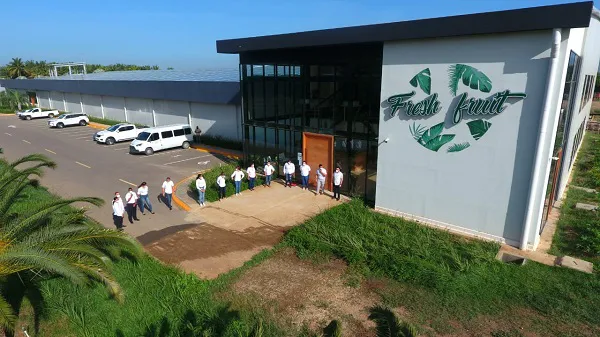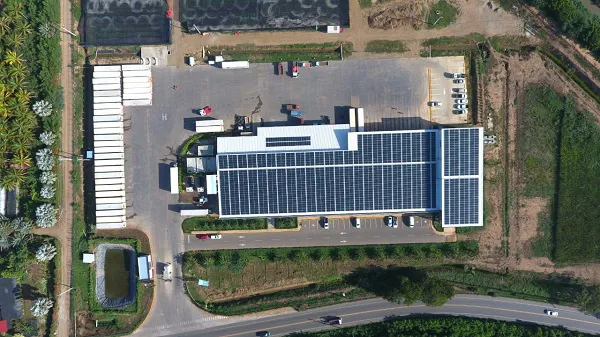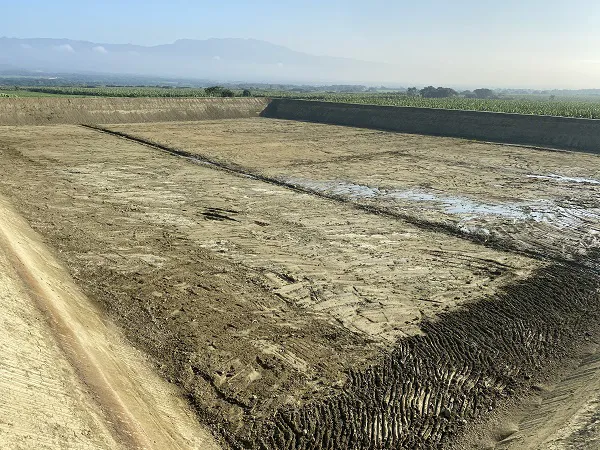"The organic sector continues to grow, and considerably so in the United States. But there's been an oversupply of conventional bananas for years. This means lower prices, and these seem to be, at the very least, hindering the organic banana sector's normal growth," says Pol Vermeiren, Business Development Manager at Fresh Fruit. This company produces organic bananas in the Dominican Republic and markets them.
 Fresh Fruit produces organic bananas in the Dominican Republic
Fresh Fruit produces organic bananas in the Dominican Republic
The COVID-19 pandemic is also influencing banana sales. When the virus hit, the demand for organic bananas rose. But now, the lockdowns and measures are disrupting consumers' regular buying patterns. That's affecting the market. "The situation where more people wanted organic bananas than are available is certainly a thing of the past. There's a lot of cultivation now. I think the supply is definitely meeting the regular demand anyway. That poses new challenges for us."
One of those challenges is buyer requirements. They increasingly want bananas to be already packaged for consumers in the country of origin. Then, they need only to be ripened on arrival. "That's why we've invested in a distribution center. It's been in operation for a year," explains Pol. Another issue that's starting to plague all banana growers is a certification overload. "There are lots of overlaps and even contradictions. This all translates into costs for producers."
 Bananas are carbon neutral
Bananas are carbon neutral
Doubled productivity
When Fresh Fruit began farming organic bananas in the Dominican Republic, its productivity - 1,500 cartons per hectare - was about half that of its competitors. Five years on, that's no longer the case. Fresh Fruit also supplies around 3,000 cartons per hectare. Pol primarily credits Fresh Fruit's team of young, motivated people for this. But research investments have also paid off. "Organic cultivation starts with finding the perfect soil. Bananas need soil with a specific chemical composition.
Soil structure is also important. It helps grow strong fruit, because, as with conventional cultivation, farmers can't intervene. To control pests, Vermeiren looks for new methods, like using non-crop-threatening insects. "Pest control involves a lot of innovation. We use all the new techniques in that area. We do a lot of research, too, and try to combine precision horticulture with biodiversity." Climate change also plays a role in banana cultivation.
 Fresh Fruit builds large water basins at the banana plantations
Fresh Fruit builds large water basins at the banana plantations
The Dominican Republic seems to be experiencing long dry spells. That's why Fresh Fruit has opted to plant its banana trees upstream of rivers. They also built large water basins. All the farms have sprinkler irrigation, too. That reduces water consumption fivefold compared to the traditional flood irrigation method. The number of hurricanes is also on the rise. "We try to cope with that by placing the plantations along different rivers, so spreading the location risk," the manager says.
Carbon footprint
However, Fresh Fruit doesn't focus solely on sustainable farming. Sustainability in all aspects of business is important to them too. For example, the company has calculated its farm to fork carbon footprint. An external company carried this out, and a third-party is now certifying the results. That's so the company can be 100% transparent to clients and consumers.
"We can now proudly offer carbon-neutral, organic bananas." Pol says that from an operational stance, the aim is to go even further. Fresh Fruit wants to fully offset all its CO2 emissions itself through further investments and new projects. "With that, Fresh Fruit is already well on its way," Pol concludes.
More information
Fresh Fruit
Pol Vermeiren
pol.v@freshfruit.com.do
